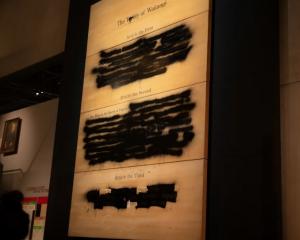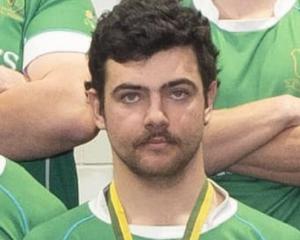Kim Dotcom is challenging the warrants used to seize his fortune in new court documents, which accuse the FBI of double-crossing his Megaupload company.
The new court filing says the courts need to examine closely the evidence submitted by the FBI when it sought seizure warrants as part of its investigation into Megaupload.
It pointed to a "pattern of governmental misconduct plaguing proceedings" in New Zealand, and said the FBI secured judicial backing to go after Megaupload by misrepresenting help the file-sharing company had given during the investigation into an internet pirate.
"This is huge," Dotcom tweeted, announcing the filing. It was proof of the "US government acting in bad faith" and the Department of Justice "misleading".
Dotcom and three colleagues are facing extradition to the US on charges of criminal copyright violation, which they deny.
The claim of dishonesty hinges on testimony given by the FBI of Megaupload knowingly acting as a haven for illegally copied movies. The testimony was given a year ago in hearings which saw warrants issued for Dotcom and his business associates.
Details released from US courts in November showed the FBI relied on the existence of 36 illegally-copied movies as evidence of wilful law-breaking. The FBI told the US courts Megaupload had been told of the illegal files in 2010, and the continued existence was evidence to flagrant criminality.
However, Dotcom's lawyers said the files were kept at the request of the US government, which asked it do nothing to impact on its criminal investigation. They claimed FBI testimony to secure arrest warrants managed to "exclude critical facts" which would have shown the company's efforts to assist.
Instead, they gave a "selective distorted account" and "deliberately misled the court".
The filing says Megaupload was painted by the FBI as a "brazen scofflaw" and the files were the only linking thread which tied together those described by the FBI as the "Mega Conspiracy".
It also pointed to other court cases which showed warrants being declared invalid if the applicant - in this case the FBI - was shown to be dishonest or reckless.
The help sought in 2010 related to a Homeland Security investigation into NinjaVideo, a file-sharing site which used Megaupload's system to store files. An agent on the case contacted Megaupload's data storage company Carpathia to ask for help securing the files. Megaupload was told not to alter or change the files - a detail not later mentioned by the FBI.
Dotcom's lawyers pointed to an email between Carpathia and Megaupload from 2010 as capturing the reality. The email, from Carpathia executive Phil Hedlund, detailed the search warrant issued to capture the NinjaVideo material.
Mr Hedlund said the warrant was restricted to just Carpathia and Megaupload but would be otherwise kept secret. He said it was possible to do so "because we relayed to the Government Mega's willingness to work with the Government for these types of requests". He added: "We have no reason to believe Megaupload is the target of the investigation."
The Weekend Herald revealed the details around the so-called double-cross in November when the first US court files were unsealed. Dotcom, waiting on the US to comply with NZ court orders for discovery, said: "I understand why the US is working so hard to appeal the discovery decision."
He said Megaupload worked hard to comply with requests to remove unlawful material. "We have always co-operated. We have responded to takedown requests, we have been a good corporate citizen."
- By David Fisher of the NZ Herald












